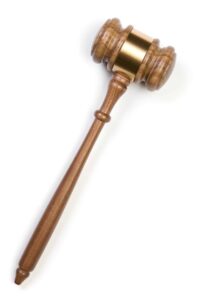
Past Recollection Recorded
According to the “past recollection recorded” exception to the hearsay rule in D.C., a party is allowed to introduce as substantive evidence a memorandum or record concerning a matter about which a witness once had knowledge but now has insufficient recollection.
 The party seeking to introduce this evidence must be able to prove that (1) the witness had first-hand knowledge of the event, (2) the written statement is an original memorandum made at the time of the event and while the witness had a clear and accurate memory of it, (3) the witness lacks a present recollection of the event, and (4) the witness can vouch for the accuracy of the written memorandum. Carey v. United States, 647 A.2d 56, 58 (D.C. 1994)(citing Mitchell v. United States, 368 A.2d 514, 517-518 (D.C. 1977)(per curiam)).
The party seeking to introduce this evidence must be able to prove that (1) the witness had first-hand knowledge of the event, (2) the written statement is an original memorandum made at the time of the event and while the witness had a clear and accurate memory of it, (3) the witness lacks a present recollection of the event, and (4) the witness can vouch for the accuracy of the written memorandum. Carey v. United States, 647 A.2d 56, 58 (D.C. 1994)(citing Mitchell v. United States, 368 A.2d 514, 517-518 (D.C. 1977)(per curiam)).
Although the opinion in Carey related to a witness’ written statement to police, the use of the exception was also affirmed in Pickett v. United States, 822 A.2d 404 (D.C. 2003), a case that involved the introduction of a videotaped interview.
The “past recollection recorded” exception should not be confused with a party’s “refreshing the recollection” of a witness. In both cases, the witness is presented with a writing after failing to recollect a material event.
In the case of refreshing recollection, the purpose of presenting the witness with the writing (or a song or a photograph or virtually anything that can serve as a memory aid) is to jog his or her memory so that the witness can now testify from a refreshed memory. It is the testimony, not the memory aid, that constitutes the evidence.
In the case of “past recollection recorded,” the witness fails to have her memory refreshed after being presented with the writing. At the same time, the witness can affirm that she recognizes the writing as a memorandum made when the facts were still fresh in her mind, that she had first-hand knowledge of the event, and that she can vouch for the accuracy of the memorandum. In this case, it is the writing itself, not the oral testimony, that becomes the evidence.
